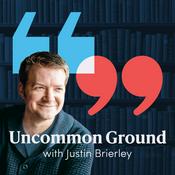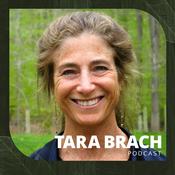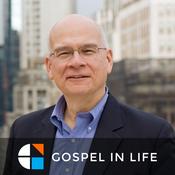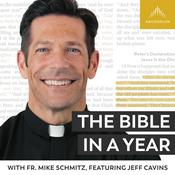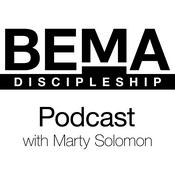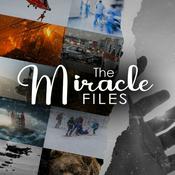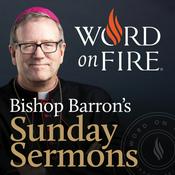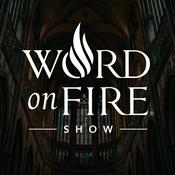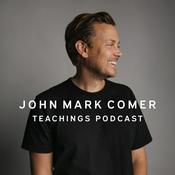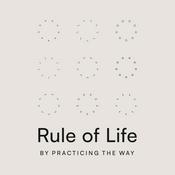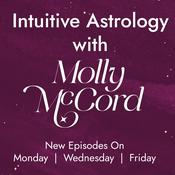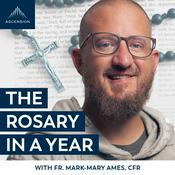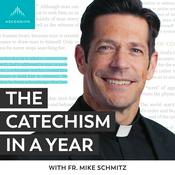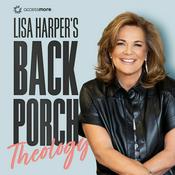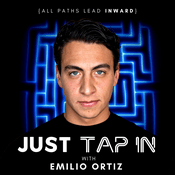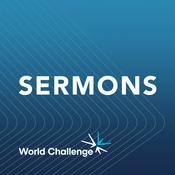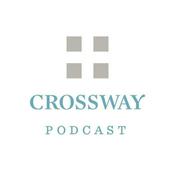44 episodes
- A strange thing happened in 2019. A five-part paranormal documentary series named after a small town in Kentucky was released for free on the internet. The promo art for the series featured a bizarre humanoid figure with a conical head and amphibious features and felt like clear counterprogramming to the run-of-the-mill ghost-harassing fodder dominating mainstream TV at the time. The project was helmed by first-time director Karl Pfeiffer, and the documentary focused on the chummy husband-and-wife paranormal investigation duo, Greg and Dana Newkirk. Up until this point, Greg and Dana were known primarily as ghost hunters, and their approach to branding could best be described as the intersection of the anomalous and fart jokes. This new documentary, Hellier, felt very different. As a pretentious snob, at the time, I would have called myself a Fortean. I was less interested in ghost-hunting shows and Ancient Aliens than I was in pondering the novel theories of Jacques Vallee and Terrence McKenna and their implications for what we might call the paranormal.
Even though I was skeptical of Hellier initially, it was free after all, and I dove right in. Much like the Newkirk's themselves, I was shocked to discover that what was ostensibly going to be a quirky investigation of a purported goblin sighting soon became a deeply engrossing meditation on the amorphous nature of paranormal activity, and the implications of the phenomena, once glimpsed, staring back wryly. Credit to the team behind Hellier, as the narrative they encountered became weirder, so did their approach to the investigation. It's clear that John Keel and his heterodoxical embrace of so-called "high strangeness" in considering the realm of the paranormal became an intentional road map for the Newkirks to follow, but maybe less obvious to them was the way in which their goblin hunting movie was also becoming infected by a mysterious, co-creative trickster energy, more akin to Robert Anton Wilson's 1977 narrative non-fiction ordeal Cosmic Trigger. Playboy writer turned ironic cult leader, Robert Anton Wilson, through documenting his own psychedelic and synchromystical experiences with skillful levity and wit, fomented an occult revolution. Although Wilson was clearly a product of the late sixties hippie generation, his novel approach to the subject of the anomalous and esoteric planted a seed in the budding young weirdos of the next generation, becoming something of a patron saint for the chaos magicians and psychonauts that would carry the occult revival torch for the cyber punks and archaic revivalists of Generation X. By the time Hellier was released in 2019, Cosmic Trigger's influence had wained, and a new generation, unaware that all the structures holding together consensus reality were about to crumble around them, were ripe for an initiatory artifact of their own. To my estimation, Hellier became a new participant in the initiatory current that propelled Cosmic Trigger to infamy, but updated for the internet generation, and made bingeable.
There's a cathartic moment early in Hellier's second season where the floor drops out from under the premise of the series, and the creators sit down to recount the flurry of messages, warnings, and clues they received after the show first premiered. These messages weren't from their target ghost-hunting demographic, but a swarm of online occultists, who in an uncoordinated effort had reached out in droves to explain the hidden premise of their own show to them. Hellier, the series, the project, it was suggested, is a ritual, and an initiation is being unknowingly undertaken not only by the show's creators, but by its audience as well.
Season 2 of Hellier premiered a few months before a worldwide lockdown, spurred on by the Covid-19 pandemic, would cause a large swath of the world who would normally be distracted by the mundane toils of daily life to be sucked deep down internet rabbit holes. For people like me, this was Hellier. Viewers across the globe reported synchronicities they began to experience in their own lives, seemingly a reflection of the bizarre occurrences that pursue the Newkirk's in both seasons of the show. In reddit forums and discord servers people were describing odd sightings of conspicuous blue star balloons, similar to the investigators on the show, as well as eerily consistent audio phenomena, frequent and uncanny occurrences of revelant names and symbols, and more widely a feeling that the rising number of synchronicities in the lives of the show's audience were evidence that something was intentionally leaving a trail of breadcrumbs for them to follow.
This bizarre effect of the phenomena, once glimpsed staring back, isn't merely an example of the hunter becoming the hunted, but rather a mystical form of call and response. The breadcrumbs people have been led to follow from this sort of engagement don't often lead in a straight line, but weave like a maze. What can seem like hoaxes and fictions can, bizarrely, lead to true insights into these experiences for the participants. In many ways, these experiences are like being sucked into an Alternate Reality Game, with a loose and hidden set of rules. In this game, the initiatory phenomena seems to operate outside of the assumption that "x" marks the spot, instead rewarding the active participant choosing their own adventure.
Was the inciting incident of the Hellier series, essentially an anonymous tip about a goblin sighted in a Kentucky cave, just a rouse all along? A story that, when given the attention of Pfeiffer and the Newkirks, could be taken up and used by something else? What are we to make of this strange relationship between fiction, the phenomenon, and its ability to insert itself into our lives? My takeaway from watching Hellier and the subsequent synchronicities that entered my own life was that it wasn't the ghost hunters or speculative philosophers who seemed to have a real grasp on what I was experiencing. It was the occultists. Before long, what was once an armchair fascination with the Fortean, for me, became an active one. Magic has been a core part of my life ever since. I soon learned that the anomalous initiation that can follow a dead-end email tip about a goblin may be no different than the effects instigated by putting the statue of a deity on an altar and starting to talk to it like it can hear you.
Today's guest also felt Hellier's initiatory effects, but in the opposite way. Celeste Mott was already a self proclaimed Witch and professional tarot reader in New Orleans' French Quarter when lockdown drove her into the show's orbit. For Celeste, Hellier didn't introduce her to magic so much as showed her new ways to think about some of the stranger examples of how it manifested in her life. It turns out this wasn't Celeste's first foray into initiation via cultural artifact.
Celeste has recently had more than one viral moment while recounting how she was ensnared in an online Anne Rice vampire cult in the early days of the internet. Her story is fascinating, at times hilarious, at times disturbing, and ultimately a story about how narrative has the power to initiate, manipulate, and take on a life of its own. As someone who got chewed out by a deacon for reading Interview with a Vampire during a church service when I was nine, I am so here for this story. Today, Celeste is exploring how the same narrative magic she may once have fallen prey to, through a conscientious engagement with this byproduct of high strangeness, can instead be harnessed for personal empowerment. Oh yeah, we talk about Mall World too.
SHOW NOTES:
Celeste's Site: celestemott.com
Celeste's Substack: TheMothsMissives
Celeste's Patreon: TheMoth-UrHouse
Celeste on TikTok: @CelesteMoth
Celeste on IG: @celestemott
Celeste on YouTube: c/celestemott
Watch Hellier: YouTube - UPG is a term I find to be often misunderstood. Short for "unverified person gnosis," this phrase is sometimes wielded as a criticism in the world of spirituality – pagan, polytheist, or otherwise. It's the word "unverified" that stands out in this instance, that seems to be contextualizing someone's "personal gnosis" – about a spiritual path, or being, or myth – as dubious, or heterodox. When used disparagingly, UPG can feel like a corrective. In many ways it can feel like a tool within so-called "alternative spirituality" to reinforce the kind of strictures of the culturally dominant monotheisms onto the "Old Gods" – whether they like it or not.
In the protestant form of Christianity that I grew up with, the word of God had already been written down, in the Old Testament and the New Testament, and that was the Almighties mic-drop. Any divine addendums beyond it were generally considered heresy. When the stakes of divinely inspired words can bear the punitive power conferred by the Christian Bible, it's easy to see why the amendment process would be extremely bureaucratic. It's this very patriarchal approach to spirituality that we find in monotheism, though, that makes alternative spirituality so appealing in the first place. What if UPG is a feature of spirituality, not a bug? What if idiosyncratic personal gnosis from a god, or spirit is a sign that you're having an authentic interaction, as opposed to adopting a state mandated morality tale? What if the gods and their stories are alive, and not frozen in amber?
When Briar writes about the gods, they feel alive. They have new things to teach, and to convey, and the forms they can take are not limited to our preconceived notions. When we hear the word "polytheist," I think we can sometimes think of someone with a religious practice similar in philosophy to monotheism – where the god in question is an all powerful and omnipotent authority to be obeyed – only, with a lot more gods to contend with. From this vantage, a goddess of Spring or a God of the sea, can seem like a goddess ruling over Spring, or a god ruling over the sea. In actual practice I think the relationship is a lot more fluid, and experiential. Pantheons, I think, are not actually so codified. They are beings to be co-created with, in flux and in dialogue.
Briar's Polytheist practice takes the form of what she likes to call the "home cultus." Where the gods are shaped by the land, and alive in the home, imparting gnosis with no verification required. Not frozen in amber, but in active participation. On today's episode, Briar breaks down the anatomy of a home cultus, and invites you to cultivate your own.
SHOW NOTES:
Briar's Website: The Greene Chapel
Briar's Patreon: Briar of the Greene Chapel
Briar's Chap Book: The Beheading Game
The Holy Mountain Zine: @holymountaincitv - What can change a goddess into a nature spirit? What can change a nature spirit into a witch? A hasty answer might simply be "colonization." This was the evolution of Fröja in Sweden. I don't think we can have an intellectually honest discourse about folklore without confronting the forces of colonization head-on. What has this ongoing process done to the gods, the spirits, and the myths of a people? However, stopping there might miss the point.
I think we also need to ask: what is the agency of a Goddess during a religious conversion? Does she merely recede into the past, or does she take an active role in co-creating her future? While I personally can't bypass the erasure of ancestral lifeways, I also choose not to skip from the year 800 to the birth of Neo-Paganism, when considering the engagement of a Goddess with their people. I like to embrace the mystery of a Goddess making a home in a tree, or speaking through a fairy tale, or whispering secrets to a cunning person. I think this multivalence doesn't diminish a Goddess, but actually makes them more.
Sara Bonadea George offers us a glimpse into this interplay of folklore, mythology, and shifting paradigms in the history of Sweden. In her excellent new books, Fröja's Apples and Flowers of Blood, Sara weaves plant lore, folk customs, and anecdotes from antiquity into a beautifully presented repository of a magical terroir. What is the relationship between Odin and the Virgin Mary? Why did Mugwort ask to be called Luna? Why does a white snake guard an oak tree in the forest that never loses its leaves? Let's find out.
SHOW NOTES:
Fröja's Apples - Hyldr Press
Flowers of Blood - Hexen Press
Sara's IG: @sara.bonedea - There may be no clearer gateway drug to magic in 2026 than astrology. You don't need psychic abilities, or a spirit court, or a wider mystical philosophy to dabble in astrology. Just a birthday. I've always been a proponent of practical magic – the kind that helps you get stuff – not as an end goal, but as a necessary step, for many, in re-enchanting their minds. Astrology can do something similar, though, with merely a natal chart reading. What do the planets have to do with who I am? It doesn't really matter why astrology can tell you about yourself; the power is in simply acknowledging the mystery.
And for many, this is what astrology is for. It's a tool for self-reflection and self-care. It reinforces the ideas we have about ourselves and can help us better navigate the world around us. To many, it is more psychological than magical. More personal than universal.
I've always found astrology interesting, but it wasn't until I first encountered Hellenic and electional astrology that I really got hooked. Rather than consulting astrology to understand why I'm so stubborn, or why my partner and I have different tidying habits, Hellenic astrology revealed a vast, and hitherto invisible, procession of fate and fortune. A mirror of world events playing out in the heavens that could not only tell me when I might go through a career change or have children in the next decade, but also when a war might break out, or a political leader fall, or a revolution erupt in a given country. On a personal level, Hellenic and electional astrology has been a valuable tool to plan rituals, and reference for omens, but on a macro level I've engaged with it almost like prestige TV.
The height of this macro engagement for me comes every January, when my favorite astrologers put out their forecasts for the year to come. Living now squarely in "interesting times," in a world of ever increasing chaos and novelty, these forecasts have become something of a cathartic schadenfreude, if I'm being honest. With all the discord and despair and conflict playing out before us on the world stage, it can be mildly comforting to, if nothing else, feel like you have some idea what might be coming next, if for no other reason than to rubberneck from the comfort of a moment in time where it's all still merely unfolding. I find astrology used to these ends to be fascinating, and useful, and important. If our engagement with astrology ends there, though, at the level of forecasting the inevitable, it can also be paralyzing and disempowering. If, at the most basic level, astrology is something about our personality, then at this elevated level, it can often feel like astrology is something that happens to us.
Teagan West has a different approach. Not only drawing on the revival of ancient techniques, but also imbuing her practice with animism and alchemy. What happens to astrology when we view the planets as ancestors? What if astrology isn't something that happens to us, and is instead a hermetic unfolding, an act of co-creative evolution coming just as much from us as from the stars? Teagan's year-ahead forecasts are my personal favorite. Spirit-led, embodied, and in conversation with fate. In our chat, we explore Teagan's background, and her unique philosophy and approach to magic, and ceremony, and the stars. Also, in our bonus conversation on Patreon, I present Teagan with a few key planetary movements in the coming year and get her take on how the magically inclined might engage with them.
SHOW NOTES:
Teagan's Substack: The Altar of Stars
Teagan's Services: The Altar Healing
Teagan's Podcast: The Altar of Stars Podcast - I sometimes wonder why, of all the occult and magical currents we have on offer, Witchcraft manages to still have such a powerful pull on our contemporary culture. We find ourselves on the other side of a century of occult revivals and magical trends, and yet Witchcraft somehow stil retains a timeless appeal. More recent spiritual trends, such as the "New Age" movement, which you would expect to be a better gateway for contemporary Western people to explore spirituality, have aesthetically aged far worse than Witchcraft generally, and what once appeared modern and enlightened would now be better described as cringe. Similarly, Chaos Magic – with its having its cake and eating it to, non-commital metaphysics and whiff of the science-y – would seem to be the heir apparent to the most accessible form of magical engagement for the Western mind, but looking at the numbers: the domination of "WitchTok" in magical social media landscape, and the non-existence of a "CaoteTok" paints a pretty clear picture of the respective crossover appeal. The assumption that Chaos Magic would grow in popularity to become the magic trend of the future is similar to the presumption that "prog rock" would go on to top the Billboard charts in perpetuity from its inception. If you take a look at the ideas disseminated on WitchTok you'll run into plenty of New Age thought and Chaos Magic, but they have become subsumed under the cloak of Witchcraft.
I think a key to understanding Witchcraft's enduring popularity in the modern era lies in Jacques Derrida's concept of "hauntology." Hauntology describes the ways in which the past continues to haunt us in the present. It is somehow both a nostalgic and eerie feeling that Derrida said could be summed up most susinctly by Hamlet's line, "the time is out of joint." As our relationships, and media landscape, and ways of interacting with the world become increasingly less tangible, it's only natural that we would yearn for a more embodied way of engaging. In smaller ways we crave the experience of a time when our own lives were simpler, which is why music and fashion trends seem to be perpetually looking back twenty years. The writer Mark Fischer observed an effect that he called the "Slow Cancellation of the Future," where this nostalgia for a generation before, this desire to relive a memory of a simpler time, has caught us in a perpetual cultural time warp where novelty and innovation in the realms of art and media are rapidly decreasing, all while technology advances exponentially around us. If my generation is so nostalgic for the 80's of our youths that we largely consume media that calls back to it, will our children be nostalgic for the era we're living through today or for the 1980s, and then what about their kids?
When we look back, what are we looking for? I think we are seeking meaning in the tangibility of the past that we no longer experience in our daily lives today. In many ways, this "slow cancellation of the future" has left us in a vacant pastiche, and so we have to look back even further.
We start to crave the kind of activities that make us feel more human – maybe you take up bread baking, or exercising with kettlebells, or making beef tallow lotion. This same impulse, I think, is just as present in our spiritual lives. And hence, the timeless appeal of Witchcraft. The expression of magic that, as far back as you go, in all of its iterations, has always felt even older.
In Lee Morgan's latest book, The Rag and Bone Man, they explore the enduring influence of the Victorian Age, and the ways its novel approaches to the spirit world are still haunting us in the present day. Lee describes our attraction to this time as being related in many ways to its very substance, where, as they describe it:
"Our modern witchcraft ladders get started. Through stealing the Fat from the previous era (one that still exists inside us in the presence of our own great-grandparents), we can nourish ourselves here in this one."
In Lee's new book, they weave together academic research, poetic fiction, and embodied practice to bring the Victorian era's ecstatic hunger for a new kind of spiritual experience into tactile relief. Here we, just like the Rag and Bone Man of his time, can "steal the fat" from the discards of the past, and deepen our own practices.
Also, a friendly reminder that you can tune in to our extended conversation on Patreon, where we talk about the nature of being in diaspora as a magical practitioner, the ways that Lee's practice has evolved since they first started writing, and the "slow cancellation of the future."
SHOW NOTES:
Order the Book: The Rag and Bone Man
Lee's Website: Leemorganbooks.com
Lee's Patreon: Lee Morgan
More Religion & Spirituality podcasts
Trending Religion & Spirituality podcasts
About Radical Elphame
A podcast about The Otherworld, and the people who engage it. A journey through conversations with a wide array of thinkers, practitioners and writers. Join us as we delve into folklore, consciousness, witchcraft, and all the perennial mysteries that haunt and inspire us.
Podcast websiteListen to Radical Elphame, Uncommon Ground with Justin Brierley and many other podcasts from around the world with the radio.net app
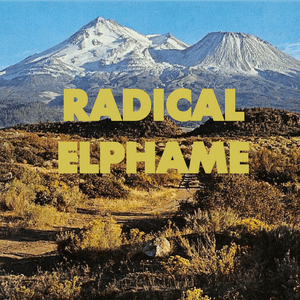
Get the free radio.net app
- Stations and podcasts to bookmark
- Stream via Wi-Fi or Bluetooth
- Supports Carplay & Android Auto
- Many other app features
Get the free radio.net app
- Stations and podcasts to bookmark
- Stream via Wi-Fi or Bluetooth
- Supports Carplay & Android Auto
- Many other app features


Radical Elphame
Scan code,
download the app,
start listening.
download the app,
start listening.


